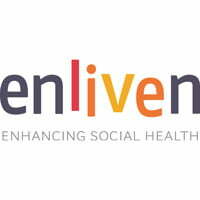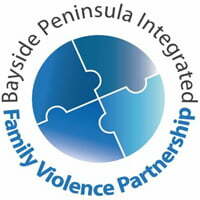Gender Equity Workshops
Our workshops in gender equity are listed below.
Gender Equality is Everyone’s business. Yet we can’t take action unless we really understand how it impacts our everyday lives – from a personal level to workplace, community, societal level. This engaging session provides foundational knowledge to those beginning their exploration of what, how and why.
It will build your understanding of the impact of gender inequality, the evidence base for gender equality, the business and social imperative and why we all have a role to play.
By the end of this session participants will...
Know:
- What intersectionality and gender are.
- The difference between equality and equity.
- Gendered norms practices and structures.
- The evidence base.
- How gender inequality works impacts our lives and workplaces.
Feel:
- Inspired to take action.
- Confident to discuss gender equality with your friends and colleagues.
Do:
- Participate in conversations and activities.
Radical Self and Collective Care contributes to how we nourish and nurture selves and others. In this training we will explore how we can plan, act, and practice self and collective care that is the most effective for us. We will stretch our thinking and feelings of self and collective care across the individual, interpersonal, organisational, community and policy spheres.
By the end of this session participants will...
Know:
- The difference between self and collective care
- Why radical self care is important in working towards social change.
- How to recognise when the necessity of self care is increasing.
- How we can nurture collective care.
- How inequity can influence barriers to self and collective care.
Feel:
- More confident to identify actions of self and collective care.
- Sense of release with strengthened awareness of the universal need for self and collective care.
Do:
- Identify self and collective care actions.
- Reflect on examples of self and collective care.
- Explore together, what we have and need to nourish and nurture self and collective care.
While there has been an increase in discourse about intersectionality, this interactive session will provide opportunity to unravel the true intent of an intersectional approach. This is not a checklist, it is a way of working, to ensure no one is left behind. Yes, we think it's a critical approach.
By the end of this session participants will...
Know:
- What intersectionality is, and its true intent.
- Why an intersectional approach is so important.
- How to strengthen your equity approach in practice.
- The importance of measuring the impact of an equitable practice in our work.
Feel:
- More confident to apply this learning in practice.
- An increased awareness of own privileges and discrimination.
Do:
- Explore through case studies and identify the why and when of this practice.
- Practice self-reflection of your own privileges.
What is the Gender Pay Gap and what can we do about it? The Gender Equality Act now requires all defined entities to report against their gender pay gap. Many are still on a learning journey on exactly how to do this.
In addition to our report and analysis services, WHISE now offers accessible tailored training that will ensure you and your staff feel more confident to analyse, communicate and take action on addressing your pay gap.
By the end of this session participants will...
Know:
- What is gender pay gap is and influencing factors.
- The evidence base as to why this work is so important.
- More about your own gender pay gap and how to take action to reduce the gender pay gap in your workplace.
Feel:
- Increased confidence to evaluate your own workplace’s gender pay gap using WHISE’s guide.
- Increased confidence to take action.
Do:
- Discuss factors contributing to your pay gap.
- Action planning to reduce the gap.
This training draws on the strength of participants and will move through theory and practice to increase awareness and understanding of unconscious bias and strengthen capability to reflect on and inform their work practice.
By the end of this session participants will...
Know:
- Forms of unconscious bias and how they can influence our work and impact others.
- Why it is important to address unconscious bias.
- Why unconscious bias exists.
- Tips for how to identify unconscious bias and shift actions to minimise impact on our work.
Feel:
- An increase in awareness that we all have unconscious bias.
- More confident to identify unconscious bias in self and work practice.
Do:
- Explore practice through activities to identify situations where bias may appear.
- Reflect on self and own unconscious biases.
- Explore how to shift practice to minimise the influence of unconscious bias in our work.
In an interactive learning environment this training provides opportunity for participants to increase understanding of why workplaces must prevent and respond to sexual harassment in the workplace. Together, we will explore sexual harassment as a form of sexual assault, prevalence of sexual harassment in the workplace and actions in preventing and responding to this.
By the end of this session participants will...
Know:
- Prevalence of sexual harassment in the workplace.
- Sexual harassment is a form of sexual assault.
- How sexual harassment can present in the workplace.
- Why employees have a responsibility to prevent and respond to sexual harassment in the workplace.
- Actions employers and employees can take to nurture a safe and respectful workplace.
Feel:
- Strengthened awareness of legislative and employer obligations.
- Increased understanding of the unique impacts and experiences of sexual harassment on employees.
- More confident to respond to disclosures of sexual harassment in the workplace.
Do:
- Through group work, identify how peoples' experiences of discrimination and power, can influence the impact of sexual harassment.
- Explore why and how to identify pathways to specialist sexual assault services.
As leaders implementing Gender Equality initiatives in the organisation, it is likely you will get some form of backlash and resistance. While it can be challenging, it is a healthy part of social change.
There are many forms of resistance such as denial and progressing through to active backlash.
Join us for this interactive evidence-based training that will enable you to:
- Increase understanding of the spectrum of backlash and resistance.
- Reflect on previous experience of backlash and resistance.
- Increase confidence in responding to backlash and resistance.
- Build on your practice through case studies and group work to directly apply learnings to strengthen your existing work.
This training will provide space to practice and build on your skills, ask questions, reflect, brainstorm with your colleagues, and increase resources in your toolkit about anticipating and responding to backlash and resistance.
Join our mailing list
Stay in the loop of what's
happening at WHISE




























